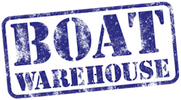-
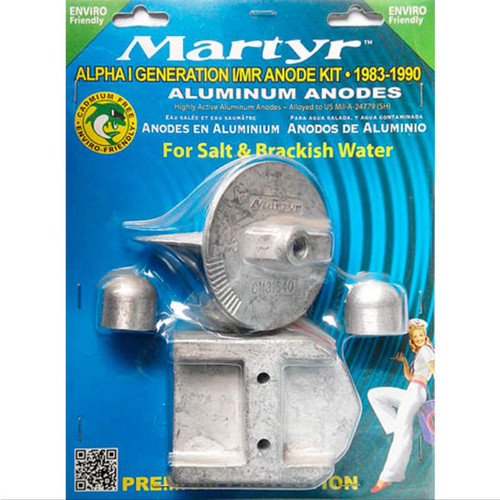
Martyr Aluminium Anode Kit - Mercury - 21300
Martyr Aluminium Anode Kit - Mercury - 21300. Weighs 50% less than traditional zinc anodes. Contains 0% Cadmium, a toxic material found in traditional zinc anodes making them environmentally friendly. Meets the US Military Specification. Proven to...
-

Martyr Aluminium Anode Kit - Mercury - 21306
Martyr Aluminium Anode Kit - Mercury - 21306. Weighs 50% less than traditional zinc anodes. Contains 0% Cadmium, a toxic material found in traditional zinc anodes making them environmentally friendly. Meets the US Military Specification. Proven to...
-

Martyr Aluminium Anode Kit - Mercury - 21308
Martyr Aluminium Anode Kit - Mercury - 21308. Weighs 50% less than traditional zinc anodes. Contains 0% Cadmium, a toxic material found in traditional zinc anodes making them environmentally friendly. Meets the US Military Specification. Proven to...
-

Martyr Aluminium Anode Kit - Mercury - 21309
Martyr Aluminium Anode Kit - Mercury - 21309. Weighs 50% less than traditional zinc anodes. Contains 0% Cadmium, a toxic material found in traditional zinc anodes making them environmentally friendly. Meets the US Military Specification. Proven to...
-

Gator Guards - Gatorskinz Non Slip
Gator Guards - Gatorskinz Non Slip. Perfect Non-Skid in or out of the water. Great for Watercraft, Motorhomes, Trailers, Golf Carts, Jet Skis, Stairs, Running boards, ATV’s and more. 70% Recycled Materials. Grit Non-Skid Patterns. Uses...
-

3M Marine Products
3M Long Life Masking Tape - 24mm
24mm Masking Tape - 3M Long Life. Utilizes a synthetic adhesive system that provides ultraviolet stability and adhesive transfer resistance up to seven days after application. Controlled crepe paper backing makes tape comfortable and smooth for use...
-

Zinc Propeller - Anode Nut / Bronze Insert
Zinc Propeller - Anode Nut / Bronze. To suit outboards, outdrives and inboards. Propeller nut insert (silicon bronze alloy) cast to C87500 composition. Note: ** Dimension C is at the widest point. Dimension D is at the small end of the tapered hex...
-
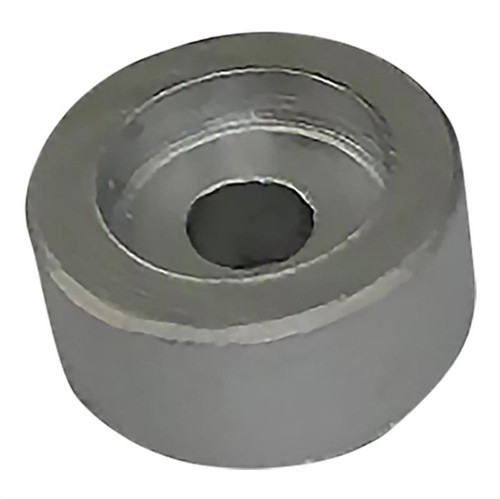
ZInc Anode - Suzuki Engine - O/B Button
Anode - Zinc & Alloy Outboard Suzuki. Suits Suzuki engines O/B Button Replaces Genuine Part No. 55320-87-JOO Part NumberPack...
-
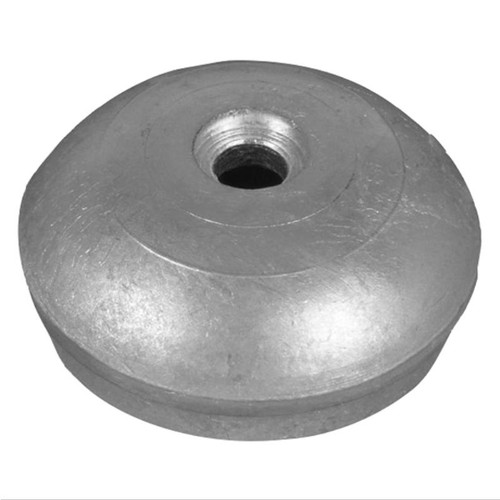
Zinc Anode - Side Power Bow Thruster - 21276
Zinc Anode - Side Power Bow Thruster - 21276. Replaces Genuine Part No.: 7 1190 Bow thruster anode To suit models: SP55Si, 55S, 75Ti, 95T, 100 Hyd Suits Engine: Side-Power Part Number Height Weight Mounting...
-

Zinc Anode - Side Power Bow Thruster - 21277
Zinc Anode - Side Power Bow Thruster - 21277. Replaces Genuine Part No.: 20 1180 Bow thruster anode to suit models: SP125Ti, 125T, SP155Tci,155Tc, SP200Tci, 200Tc, SP220Tc, SP240Tci, 15HP (20150), SP285Tci, 285Tc, 20HP (2200) Suits...
-

Zinc Anode - Gori Engine
Anode Zinc Propeller Gori Folding Sail Drive. Part NumberHeightWeightOverall DiameterInternal DiameterHole DetailSuits BladePropellersReplaces Part No. SAW-21219 40mm 0.57kg 97mm 80mm 4 x Dia. 7mm 2 13"-18" 1567000000
-

Zinc Anode - Side Power Bow Thruster - 21278
Zinc Anode - Side Power Bow Thruster - 21278. Replaces Genuine Part No.: 61180 Bow thruster to suit models: SP30, S2i, 30S, 40Si, 40S Suits Engine: Side-Power Part Number Height Weight Mounting Holes Diameter Hole...
-

Disposable Tray Liner - 3 Pack
Disposable Tray Liner - 3 Pack. Fits into 230mm wide trays. Part NumberSuits Tray SAW-201148 230mm
-

Roller Covers - Polyester Fabric
Roller Covers - Polyester Fabric. Part Number Width NAP SAW-201160 75mm 10mm SAW-201161 130mm 10mm SAW-201162 180mm 10mm SAW-201163 230mm 10mm
-

Roller Covers - Anti Foul Draylon Fabric
Roller Covers - Anti Foul Draylon Fabric. Part Number Width Pack Size NAP SAW-201171 180mm Pack of 1 10mm SAW-201171-6 180mm Pack of 6 10mm SAW-201172 230mm Pack of 1 10mm SAW-201172-6 230mm Pack of 6 10mm
-

Paint Scraper - 25mm-100mm
Paint Scraper. A comprehensive range for serious DIY use. Stainless steel blade. Full tang. Durable timber handle with brass fittings. Part...
-

Roller Tray - Only
Roller Tray. For using with most paints. Part NumberSuits Roller SAW-201145 100mm SAW-201146 180mm SAW-201147 230mm
-

Dust and Spray Masks
Dust and Spray Masks. Disposable. Lightweight. Compact design. Part NumberPack Size SAW-201090 5 SAW-201092 50
-

3M respirator 4251 half face
3M Disposable Half Face Respirator. Ideal for contractors, plant shutdowns and spill response. Lightweight, low profile and well-balanced design. Textured face seal minimizes slippage and improves comfort. One piece, maintenance-free construction;...
-
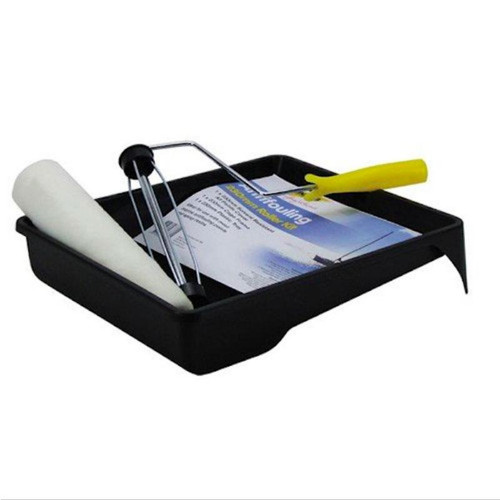
Roller Kits - Anti-Foul
Roller Kits - Anti-Foul. For use with anti-fouling paint. Part Number Width Pack Size SAW-201140 180mm Pack of 1 SAW-201140-12 180mm Pack of 12 SAW-201141 230mm Pack of 1 SAW-201141-10 230mm Pack of 10
Unit 15, 20 Narabang Way Belrose NSW 2085 AUSTRALIA ABN: 72 626 908 585
- 02 8015 2416
-
Login | My Account
New Customer
Registering provides you with personalized services, including: wish list, order status and promotions.
Register - Gift Certificates
- Store Info
